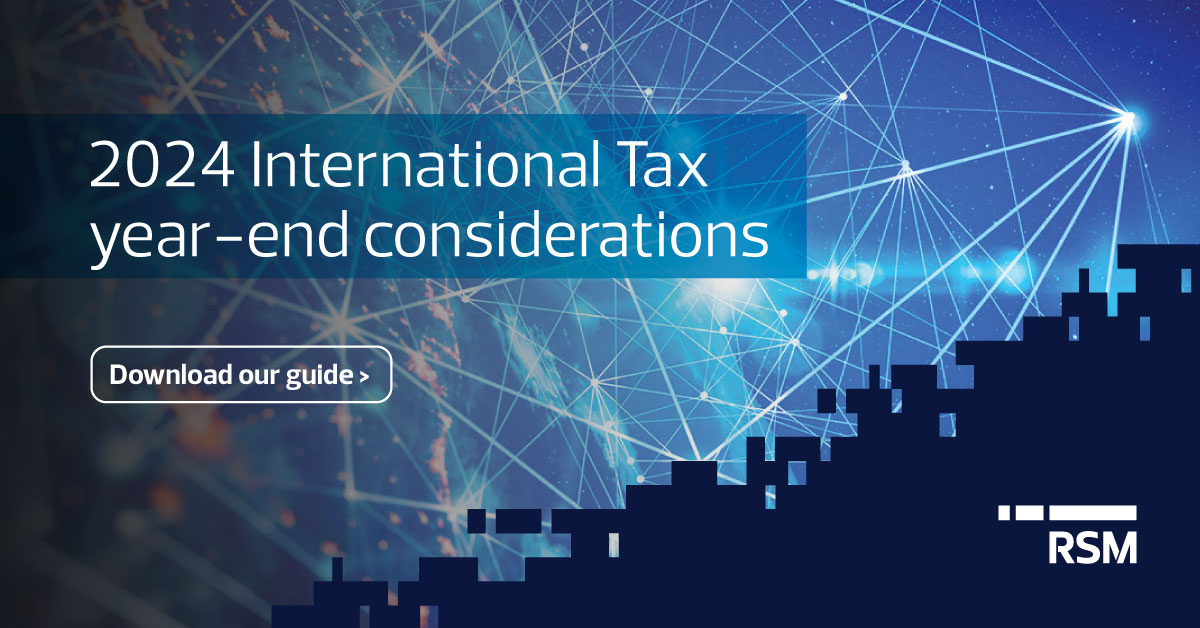Pros to Know: Deloitte Consulting’s Umesh Kumar Sharma Details Importance of AI-Driven Solutions for Supply Chain Planning

Over the past 24 years, Umesh Kumar Sharma has gone from plant superintendent to global supply chain leader. At the age of 22, Sharma stepped into the role of plant superintendent at a leading manufacturing firm, managing crucial aspects of a process manufacturing plant. At 26, he became the senior manager, production, the youngest in his company to achieve this title, putting him in charge of the entire production department, overseeing shop floor operations, manufacturing processes, production planning, procurement, raw material management, and logistics. It was during this phase that Sharma first encountered SAP ERP solutions, which ignited a passion for leveraging technology to drive operational excellence. He played a pivotal role in implementing SAP ERP at his company, gaining invaluable insights into how technology could be harnessed to streamline processes, reduce inefficiencies, and integrate complex operations seamlessly. Driven by this newfound vision, Sharma pivoted into IT consulting, with a focus on supply chain management, where he earned additional SAP certifications, and over the next several years, worked with some of the world’s top IT consulting firms, leading projects for global giants across industries like healthcare, apparel and footwear, and oil and gas. In his current role as specialist leader with Deloitte Consulting, he is responsible for architecting and leading the execution of large-scale supply chain transformation initiatives for global organizations, particularly in the high-tech and semiconductor industries. Sharma manages global transformation projects from conception to delivery, and is directly involved in overseeing supply chain strategy development, systems implementation, process design, and IT strategy. His day-to-day activities include leading cross-functional project teams, collaborating with senior executives, and ensuring the successful execution of business process transformations.
Over the past few months, Sharma led several initiatives focused on leveraging AI-driven solutions for advanced forecasting and planning. These initiatives have significantly improved forecast accuracy and inventory management for key clients in the semiconductor and high-tech industries. Under his leadership, Deloitte introduced AI tools such as a Generative AI-based supply chain troubleshooter and a collaborative event-based planning tool to help clients address critical supply chain disruptions and streamline decision-making processes. He also spearheaded large-scale digital supply chain transformations for multiple global companies, addressing post-pandemic challenges.
In the next 12 months, Sharma is committed to pushing the boundaries of how AI can revolutionize supply chain management. Leveraging his expertise in SAP Integrated Business Planning (SAP IBP), he plans to focus on developing advanced AI-powered tools that address critical challenges faced by global supply chains. He also intends to enhance predictive analytics capabilities within SAP IBP, and envisions using generative AI to support scenario-based planning within SAP IBP.
We talked exclusively with Sharma about his journey, his goals and AI’s role in building smarter, more resilient supply chains.
Supply & Demand Chain Executive: Let’s first talk about you. Tell me a little bit about yourself and your journey to get to this current stage in your career?
Umesh Kumar Sharma: My journey in supply chain began over two decades ago, and it started with the operational side of things—working on the shop floor, managing production planning, and overseeing warehousing. As technology started reshaping the way supply chains function, I got intrigued by how digital solutions could drive big changes. This curiosity led me to shift toward technology-driven transformations, and over the years, my role grew from managing daily operations to leading large-scale supply chain transformations for global organizations. I’ve had the opportunity to work across various industries—semiconductors, high-tech, life sciences, and consumer products—helping companies deal with complex challenges and become more agile.
What excites me most about my work is leveraging technology to transform traditional supply chains into intelligent digital networks. Whether it’s through ERP systems, AI-driven forecasting, or advanced analytics, I’ve seen firsthand how these innovations can boost resilience and improve decision-making. Right now, in my current role, I focus on leading transformation programs that integrate AI, machine learning, and predictive analytics into supply chain planning. It’s been a journey of constant learning, and with how fast the industry is evolving, I’m really excited about what the future holds.
Supply & Demand Chain Executive: One of the things outlined in your submission is your passion for leveraging technology to drive operational excellence. Why is this so important?
Sharma: Technology isn’t just an enabler—it’s a complete game-changer for modern supply chains. These days, businesses are navigating more complexity than ever before—whether it’s market volatility, geopolitical changes, or rapidly shifting customer expectations. The old, reactive ways of managing supply chains just can’t keep up with this kind of unpredictability.
That’s where AI, machine learning, and advanced analytics come in. Instead of waiting for disruptions to happen and then reacting, companies can now predict and even prevent them. These technologies help optimize inventory, improve customer service, and reduce costs—allowing businesses to stay ahead of challenges rather than just responding to them.
But operational excellence today is about more than just efficiency. It’s about agility, intelligence, and resilience. The ability to quickly adapt to changes, make data-driven decisions in real time, and build truly responsive supply chains is what separates the leaders from the rest.
Supply & Demand Chain Executive: Also outlined in your nomination form is how, under your leadership, you implemented AI-driven solutions in supply chain planning. Tell us more about these solutions, what they’re designed to do, and how they benefit the supply chain space?
Sharma: AI has played a major role in enhancing customer experience and building smarter, more resilient supply chains. One of the biggest hurdles companies face today is getting accurate demand forecasting while dealing with an increasingly complex and volatile market. By using machine learning-based forecasting algorithms, businesses have been able to improve demand accuracy, leading to better planning and decision-making.
As part of various business transformation initiatives, AI-driven solutions have been implemented to address critical supply chain challenges. One such solution is the Generative AI-based Supply Chain Troubleshooter, which helps planners quickly identify and resolve bottlenecks in order confirmation—an area that has traditionally caused delays and inefficiencies. By enabling faster, data-driven decisions, this solution ensures that businesses can meet customer demand more reliably.
Another key capability is Attach Rate Planning, which plays a crucial role in managing configurable products and complementary items. This is particularly beneficial in industries like high-tech and semiconductors, where forecasting demand for dependent products can be complex. Additionally, Demand & Supply Segmentation has been leveraged to help organizations mitigate the impact of tariffs and regulatory complexities, ensuring smoother global operations.
The impact of these AI-driven solutions is significant—improving forecasting accuracy, increasing supply chain visibility, reducing operational risks, and enhancing agility in responding to disruptions and market shifts. AI is not just improving supply chains; it is transforming them into smarter, more predictive, and more resilient ecosystems.
Supply & Demand Chain Executive: In the next 12 months, your goal is to be committed to pushing the boundaries of how AI can revolutionize supply chain management. From your vantage point, why is AI so important to the future of supply chain?
Sharma: AI is undeniably the biggest transformational force in supply chain management today. The key to AI’s power lies in its ability to revolutionize how we approach critical areas like planning, warehousing, inventory management, real-time visibility, and route optimization. In my work, I focus on harnessing AI’s potential to transform advanced planning, especially in areas like demand forecasting, inventory optimization, and supply and response management.
For demand forecasting, machine learning-based algorithms are crucial in improving accuracy. By analyzing large datasets, AI can uncover historical patterns that traditional methods often miss, providing businesses with much more reliable insights. This allows for better planning and the ability to anticipate shifts in demand before they happen. In supply and response management, AI can quickly identify bottlenecks, disruptions, or capacity issues, allowing businesses to adjust plans in real-time.
Looking ahead, I see the future of AI in supply chain management shifting from reactive applications to predictive and prescriptive solutions. AI should not only be able to detect issues but also anticipate challenges and offer actionable recommendations ahead of time.
Supply & Demand Chain Executive: If you could have a conversation with your younger self, what would you tell him?
Sharma: If I could sit down with my younger self, I’d say, “Embrace change and stay curious.” The supply chain industry is constantly evolving, and the key to thriving is adaptability. Early in my career, I focused heavily on mastering processes and best practices, but over time, I realized that true success comes from embracing innovation alongside execution.
I’d also tell my younger self to take more risks. Some of the most impactful experiences in my career came from stepping out of my comfort zone—whether it was writing a book, leading large-scale transformation programs, or exploring AI when it was just beginning to emerge. These risks turned into some of the most rewarding moments of growth.
The biggest lesson I’ve learned is that growth happens when you push yourself, challenge the status quo, and embrace the unknown.
Supply & Demand Chain Executive: The Leaders in Excellence category honors company leaders who’ve made outstanding contributions to the supply chain space. What advice do you have for other leaders in the industry as well as young professionals entering the supply chain space?
Sharma: For leaders in the industry, my advice is to invest in both innovation and people. Success in supply chain isn’t just about improving efficiency—it’s about having a forward-thinking mindset. While technology will continue to evolve, it’s the talent and mindset within the organization that drive sustained success. Leaders should foster a culture that encourages innovation, creativity, and adaptability to stay ahead of the curve.
For young professionals entering the field, I would say: build a solid foundation in both business and technology. Supply chain today is about much more than logistics or planning—it’s about digital transformation, AI, and data-driven decision-making. Stay curious, seek out mentors who can guide you, and never stop learning. The field is full of exciting opportunities for those who are eager to push boundaries, embrace new technologies, and drive innovation.
Supply & Demand Chain Executive: What are some things not addressed above that would be pertinent to include in the article detailing your strengths, achievements, overall goals, etc.?
Sharma: One area I’d like to highlight is my work in the semiconductor industry, where I’ve led supply chain transformations for several leading companies. Over the past decade, I’ve helped organizations improve their planning processes, particularly in sales and operations planning (S&OP) and sales and operations execution (S&OE). I’ve worked on addressing industry-specific challenges, such as tariff impacts and the global chip shortage, to ensure that these companies could continue to operate efficiently during times of disruption.
Beyond my work with clients, I have also focused on thought leadership in the supply chain space. I’ve authored a book, several white papers and blogs and have contributed to advancing best practices, particularly in areas like demand forecasting, inventory optimization, and response management.
Looking forward, I’m focused on helping organizations build supply chains that are not just efficient but resilient and adaptable. It’s no longer enough to just optimize for today; businesses need supply chains that can anticipate future challenges and respond quickly.
CLICK HERE to view the full list of winners.
link





